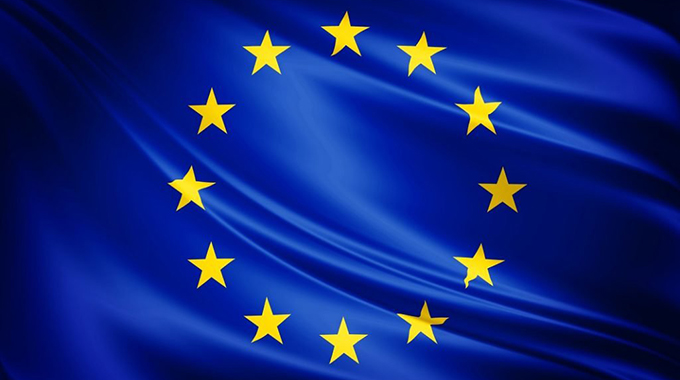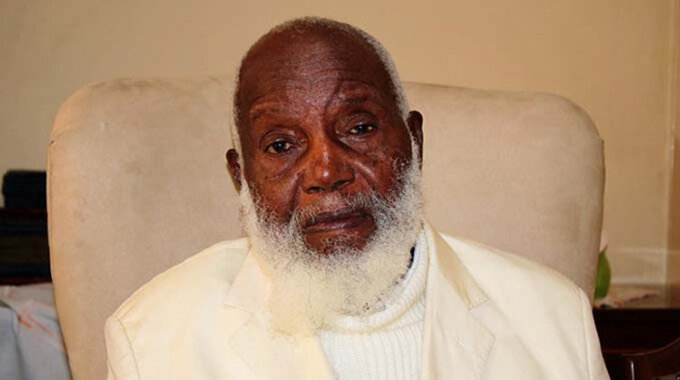Glasgow visit: Re-engagement drive scales new heights

Lovemore Chikova Development Dialogue
Since President Mnangagwa came into office in 2017, he made it clear that his foreign policy will be anchored on engagement and re-engagement to bring the country in its rightful position on the international scene.
And the President has been living up to his word, and has in the few years he has been in office done more in ensuring that Zimbabwe regains its international status.
This was out of a realisation that there is need for friendly cooperation among countries to ensure equal development and the total elimination of poverty.
Countries depend on each other when it comes to development, and if the world politics were fair enough, richer regions would not be comfortable as long as others are in poverty.
World development should not leave any country behind and this can only be achieved if countries are in tandem in terms of pushing the developmental agenda.
The engagement and re-engagement being spearheaded by President Mnangagwa will ultimately lead to the total removal of illegal sanctions imposed on Zimbabwe by some Western countries.
These sanctions have been proved to be a burden on the local population, which is bearing the brunt.
The illegal sanctions are not targeted, as some might want the world to believe, they affect the whole gamut of Zimbabwe’s development and their effects cut across the societal fabric.
They have been condemned by the United Nations special rapporteur Alena Douhan, who was in the country in the last few days to study how the sanctions have affected ordinary people.
The Southern African Development Community and the African Union have equally condemned the sanctions, calling for their removal to enable Zimbabwe to effectively chart its own developmental path.
Other progressive members of the international community, led by countries such as China, Iran and Cuba, have also called for the removal of the sanctions.
There are many reasons why the engagement and re-engagement policy will in the end help Zimbabwe progress in its aspirations, especially meeting the targets of the National Development Strategy 1 and Vision 2030 of becoming an upper middle income country.
The re-engagement policy will help end the isolation that Zimbabwe has unjustifiably suffered in the past two decades.
The country at the moment is pushing for international investment to flow its way and the re-engagement process will help unlock this capital.
A successful re-engagement will help bring back interest in the country in terms of attracting business, leading to quick industrialisation and modernisation.
The re-engagement policy was put into perspective this week when President Mnangagwa visited Glasgow, Scotland for the climate change conference known as COP26.
While at the conference, the President ensured he took the opportunity to engage with everyone who mattered in terms of the re-engagement process being pushed by his administration.
With regards to re-engagement, the visit by President Mnangagwa to Scotland was extremely successful as he managed to state the country’s case in face-to-face interactions with those important to the success of this policy.
Here is a summary of President Mnangagwa’s engagement with other world leaders and leaders of institutions relevant to Zimbabwe’s re-engagement policy.
United State President Joe Biden
President Mnangagwa managed to speak with US President Joe Biden while he was in Scotland.
This meeting was important to Zimbabwe’s foreign policy of engagement and re-engagement, considering that the US has played a big role in the isolation of Zimbabwe.
The US has imposed illegal sanctions on Zimbabwe to the extent of coming up with the Zimbabwe Democracy and Economic Recovery Act (ZIDERA) of 2001.
It has since been proved that the contents of ZIDERA have nothing to do with establishing democracy in Zimbabwe and enhancing its economic recovery.
Instead, there is no doubt even in the minds of the Americans that ZIDERA has caused more suffering among the ordinary people than they imagined.
Even some sections of the US society have been criticizing these sanctions as stalling development in Zimbabwe and depriving the ordinary people of their basic rights to a prosperous life.
It is in this perspective that the meeting President Mnangagwa had with President Biden is important in ensuring that the US President understands the New Dispensation’s approach to world affairs.
From this interaction, the US should start having a re-look on its actions against Zimbabwe and understand that the new administration is doing business in a new, refreshing way.
This new way of doing business is anchored on President Mnangagwa’s widely quoted phrase that Zimbabwe is “a friend to all and enemy to none”.
British Prime Minister Boris Johnson
The interaction President Mnangagwa had with British Prime Minister Johnson was important in different aspects, with eyes firmly on the ball of re-engagement.
The imposition of sanctions by the European Union and the eventual isolation of Zimbabwe started with a dispute between Zimbabwe and Britain.
This followed the fast track land reform programme the Zimbabwe government embarked on in 2000.
The British were not happy that it was the majority of people who could trace their linage to that country who were going to lose farms that were being redistributed to the landless majority. The lobbying done by the British resulted in the imposition of sanctions by the EU, with trade between the bloc and Zimbabwe reaching rock bottom.
It was crucial that President Mnangagwa met Prime Minister Johnson, such a meeting taking place for the first time in 25 years between a Zimbabwean leader and a British Prime Minister.
The ice has been broken by this meeting and what is expected to follow are more talks and searching of a common position between the two countries.
Commonwealth secretary general Baroness Patricia Scotland
This meeting was important in various ways, especially considering that Zimbabwe was an important member of the Commonwealth before it pulled out in 2003 citing unfair treatment.
In fact, following the fallout with Britain, it became untenable that the country was to remain in the grouping which is an idea of the European country.
From the closed door meeting President Mnangagwa had with the Commonwealth secretary general Baroness Patricia Scotland, it emerged that the body is ready to welcome Zimbabwe back into the group once processes for rejoining, which are underway, are complete.
“Both the President and I have been talking about the issues which we both see have to be dealt with,” she said after meeting President Mnangagwa.
“We are hoping to welcome Zimbabwe once the processes that we talked about today have been completed.”
President Mnangagwa said there were conditions for rejoining the Commonwealth but there were processes being followed.
European Union Council President Mr Charles Michel
It is well-known that the EU imposed illegal sanctions on Zimbabwe at the instigation of Britain.
Now that Britain has moved out of the EU, there is no reason why the bloc should maintain the illegal sanctions because their enforcer is no longer part of the system.
The European Council includes all European Union Heads of Government that sets the EU agenda. The fact that Mr Michel tweeted after the meeting that the EU was ready to re-engage clearly indicated how President Mnangagwa’s approach to the re-engagement and engagement process is working.
He tweeted: “Meeting President of Zimbabwe @edmnangagwa at the @COP26 in Glasgow. The EU stands ready to re-engage and support in implementing necessary reforms and tackling global challenges.”
United Kingdom Minister of State for Africa Ms Vicky Ford
While in Glasgow, President Mnangagwa had a meeting with UK Minister of State for Africa Ms Vicky Ford where he explained the development trajectory Zimbabwe has taken through the devolution agenda.
The UK Minister of State for Africa is important in the re-engagement process since she is the one who recommends policy on how the European country relates with African countries.
This was an important meeting in that Ms Ford will obvious brief her superior Prime Minister Johnson on Zimbabwe’s open stance in dealing with other countries.
The positive response which Ms Ford had to President Mnangagwa is crucial for the re-engagement process between the two countries.
President Mnangagwa also met Prince William and fellow African presidents on the sidelines of the meeting.








Comments